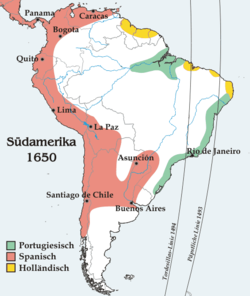 |
| A stamp commemorating Isaac Abrabanel |
This position gave him some clout as well as being fairly wealthy in his own right. When the Portugese town of Arzila on the northern coast of Morocco was captured by Moors and the Jewish population sold as slaves, he was in a position to arrange collections of funds to gain their freedom as well as contribute heavily to the ransom himself.
Alfonso's successor was not so friendly to Jews, imprisoning many; Abrabanel left Portugal for Spain under Queen Isabella of Castile. Although in 1492 Isabella would create (with Ferdinand of Aragon) the Alhambra Decree and expel Jews from Spain, at this earlier time she was willing to accept the help of a sharp financial man who could make sure royal revenues for the military were handled properly and the military was provisioned well.
Unfortunately, the presence of Jews in Spain became a difficulty for the rulers, and the Alhambra Decree was produced in 1492. Abrabanel pleaded with Ferdinand, and offered him the sum of 30,000 ducats to reverse the decision—all in vain. His departure from Spain also meant forfeiting the chance to regain large sums of money that he had advanced to Ferdinand for the military.
He spent a lot of time after that writing commentaries on the Old Testament, but misfortune prevented him from living a quiet life. He first went to Naples, but when the French conquered it he left for Messina, then Corfu, then Monopoli in Bari, Italy; finally, he settled in Venice, where his talents as a statesman were put to use negotiating a treaty between Venice and Portugal. Up until his death, he offered large sums of money to Spain to reverse the Alhambra Decree, but to no avail. He died in 1508 and was buried in the Jewish cemetery in Padua. The Siege of Padua a year later destroyed the cemetery, and the locations of many graves and remains were lost.


